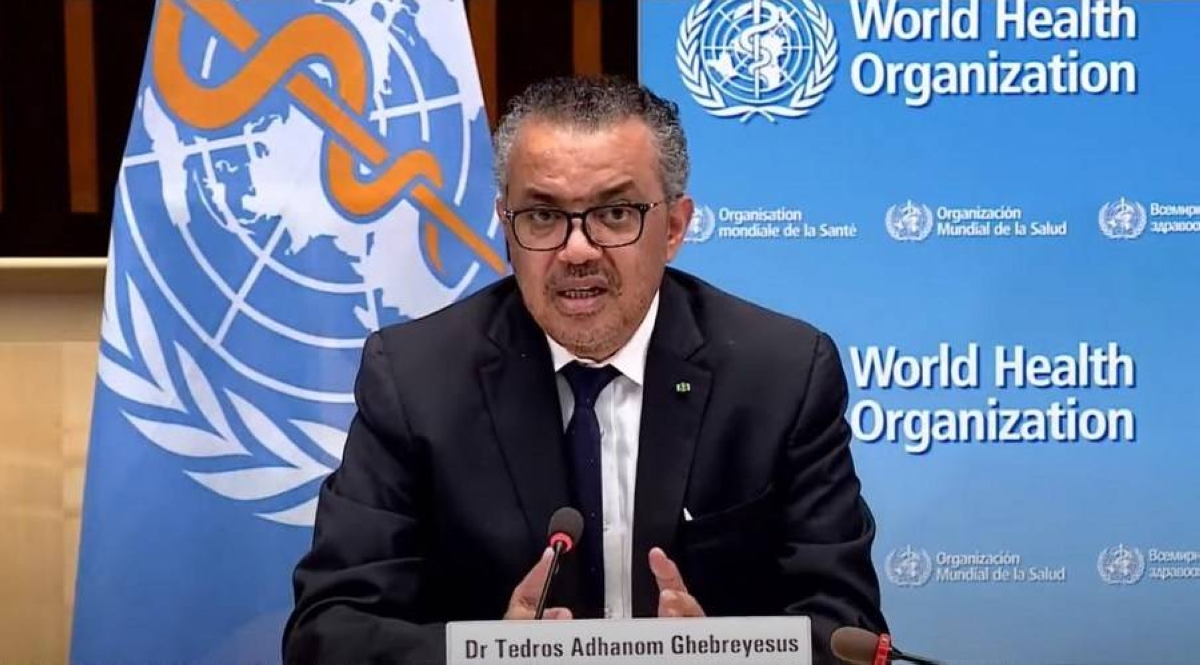The head of the World Health Organization (WHO), Tedros Adhanom Ghebreyesus, expressed concerns on Monday that countries may not be able to reach a pandemic preparedness agreement by May. The WHO’s 194 member states are currently engaged in negotiations for an international accord that aims to enhance countries’ ability to handle future health crises or prevent them altogether.
The plan was to finalize the agreement during the annual meeting of the World Health Assembly, the decision-making body of the WHO, scheduled for May 27. However, Tedros emphasized that time is running out and without compromise from all parties involved, the entire project risks stalling.
In his address at the WHO’s executive board meeting in Geneva, Tedros reminded member states of the commitment made by world leaders at the UN General Assembly to resolve negotiations on the pandemic accord and make amendments to the International Health Regulations (IHR) by May of this year. He expressed concern that this commitment may not be met due to the limited time available and unresolved issues.
Tedros warned that failing to deliver the agreement would be a missed opportunity that future generations may not forgive. He stressed the importance of courage and compromise, urging all member states to work urgently and purposefully towards reaching a consensus on a robust agreement that will safeguard our children and grandchildren from future pandemics.
In December 2021, WHO member states decided to initiate the negotiation and drafting process for a new international instrument focused on pandemic prevention, preparedness, and response. This accord aims to improve global preparedness and ensure a more equitable response to future pandemics.
Tedros declared an end to the international public health emergency caused by Covid-19 in May 2023. The governance of the WHO is divided among Director-General Tedros, the World Health Assembly, and the executive board.
The urgency to reach a pandemic preparedness agreement stems from the devastating impact of the Covid-19 pandemic. The global community recognizes the need for a coordinated and proactive approach to prevent and respond to future health crises. By establishing an international accord, countries can enhance their readiness, share resources, and collaborate effectively in times of need.
However, reaching consensus among 194 member states is a complex task. Each country has its own priorities, challenges, and healthcare systems. Negotiations must take into account the diverse needs and capacities of nations across the globe.
Furthermore, the Covid-19 pandemic has exposed weaknesses in the current global health infrastructure. Disparities in access to vaccines, diagnostics, and treatments have highlighted the need for a more equitable response. The pandemic preparedness agreement aims to address these gaps and ensure that future responses prioritize fairness and inclusivity.
While the negotiations for the pandemic preparedness agreement have been underway, there are still unresolved issues that require careful consideration. These issues may include topics such as funding mechanisms, information sharing protocols, and the establishment of a global surveillance system.
The WHO is playing a crucial role in facilitating these negotiations and urging member states to prioritize the agreement. The organization’s leadership, under Tedros Adhanom Ghebreyesus, is working tirelessly to ensure that the voices of all countries are heard and that a consensus is reached.
As the deadline approaches, the international community is anxiously waiting to see if the member states can overcome their differences and deliver a comprehensive pandemic preparedness agreement. The stakes are high, and the consequences of failure could be severe. It is imperative that countries demonstrate the necessary courage and compromise to protect future generations from the devastating impact of pandemics.
The world is watching as the WHO and its member states strive to create a global framework that will strengthen our collective response to health emergencies. The lessons learned from the Covid-19 pandemic must guide us towards a more resilient and prepared future.







